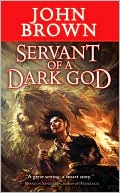by John D. Brown
 The following is part of a continuing series. If you wish to start at the beginning, head to It’s All About The Reader.
The following is part of a continuing series. If you wish to start at the beginning, head to It’s All About The Reader.
In my last post, I raised the idea that readers will be far more invested in your characters, and therefore feel more suspense, if the characters not only face troubles and are deserving, but if they are also interesting in their own right. In this post, I’ll continue listing the types of things that make a character interesting.
Wish-fulfillment
We cannot help but be interested in characters who are, do, or have things we want. In fact, this is one of the main draws of fiction–experiencing something wonderful or cool, even if it’s vicariously. Phyllis Pianka states this so well in How to Write Romances:
“You cannot write an engrossing romance novel until you create a heroine the reader *wants to* identify with and a hero the reader can fall in love with . . . they are idealized; the heroine is someone women would like to emulate: nicer, prettier, thinner, more intelligent, though not necessarily all of those things. She will have a flaw but it will be a minor one . . . the hero is the ideal lover and husband and father . . . Above all, he must be the man with whom every woman would like to fall in love [bold font added for emphasis]” (30).
A lead you’d like to be like in some way. A hero you could fall in love with. Or at least feel attracted to. Remember, readers are hoping and fearing for the characters. How can readers hope for a woman to enter a committed relationship if the readers feel the man is completely unattractive, physically or emotionally? How can we males root for the man if we feel the same about the female character? It doesn’t mean they have to be perfect. Wish-fulfillment, like many things in writing, slides along a scale. But we’ll be more interested as readers the more we can participate in the same attraction and desire.
Someone might be thinking this is just for love stories, but that couldn’t be farther from the truth. What’s one of the reasons why James Bond and all the other action heroes are so popular? Among other things, it’s because so many of us would love to live the adventures those heroes do. We would love to be the types of guys who know how to fight like Jack Reacher and get to use all the high-tech the gizmos and drive the deluxe cars. How many YA stories are about characters finding fairies or dragons or aliens? How much of fantasy is about having the powers magic grants? Wouldn’t it be cool! Of course, it would. That’s wish-fulfillment.
So when developing a character, we can think of things we’d like to be, do, or have. Then we give those things, or the opportunity for them, to our characters. Make them admirable or desirable in some way. Of course, this doesn’t mean you can’t give your characters flaws, or that you can’t write about someone we wouldn’t want to be like. Our readers don’t have to want to be like our characters in every way, but a little bit of wish-fulfillment helps. It’s something to consider.
Also, as with anything, what’s desirable to you might not be what’s desirable to me. Maybe I’m interested in anyone who has served in the armed forces or lives with some kind of risk and adventure. Maybe you can’t stand that and are enthralled instead by horses. Maybe you’d like to fly airplanes, but I’d love to fly dragons. One guy is drawn to those with happy marriages full of laughter. Another is drawn to the freedom of single life. You write your stories, and I’ll write mine. But we can both make our characters more interesting to us and our natural audiences by adding, when it fits, some element of wish-fulfillment.
Humor
We love humor. Love to laugh. And so anytime you can create a character that does this to the audience, they will be interested in them. It might be our characters have witty lines or comments. Or maybe they’re humorous types, or find themselves in humorous situations. Whatever the type of humor, anything that makes us laugh generates interest.
One note. Don’t make the mistake of thinking that making a character interesting will make them deserving or admirable. Humor, just like any of these interest factors, can be given to characters we root against. Maybe the character is funny, but it’s a cruel funny. Maybe the character is mind-stealing beautiful, but they use their beauty for terrible purposes. Sympathy and interest are different things.
Danger
Anyone who poses a threat demands our interest. This is one of the reasons why Darth Vader is so interesting. Criminals present threats of all sorts, which is why we’re always interested in them. Recall, however, that many aspects of happiness can be threatened. It doesn’t have to be a threat to life, limb, or property. For example, someone may threaten my relationship to my wife or my belonging to a group or community.
We’re also interested in those who are in danger. This ties back to the first story element of problem. In fact, the problem might be so interesting and threatening that we could cast anyone in the role and readers would go along with them. Do you really remember the leads in Jurassic Park, for instance? There’s nothing fundamentally wrong with a plain vanilla character. In fact, that might be exactly what your story needs. However, I would still see if it doesn’t improve things to make your character interesting outside the context of the story problem. If you do, you just might end up with an Indiana Jones.
Secrets
We love mysteries. And so sometimes it’s wonderful to give characters secrets. It might be the character’s secrets present a bit of danger. Maybe the character has something to hide as Aragorn does when we first meet him in The Lord of the Rings. Or maybe they have a past they don’t like to talk about because it might ruin what they’re trying to do now, e.g. an ex-con trying to go straight and get a job. Either way, we love to wonder about them and then have our questions answered in surprising ways. We like it even better when these secrets affect the deservingness of the character or our understanding of the situation the character faces.
This brings us to the end of today’s post. In the next we’ll finish with the last two draws that make characters interesting.
—
 John Brown is an award-winning novelist and short story writer. Servant of a Dark God, the first book in his epic fantasy series, was published by Tor Books and is now out in paperback. Forthcoming novels in the series include Curse of a Dark God and Dark God’s Glory. He currently lives with his wife and four daughters in the hinterlands of Utah where one encounters much fresh air, many good-hearted ranchers, and an occasional wolf.
John Brown is an award-winning novelist and short story writer. Servant of a Dark God, the first book in his epic fantasy series, was published by Tor Books and is now out in paperback. Forthcoming novels in the series include Curse of a Dark God and Dark God’s Glory. He currently lives with his wife and four daughters in the hinterlands of Utah where one encounters much fresh air, many good-hearted ranchers, and an occasional wolf.
For a list of all of the posts in this series thus far, click on the “John D. Brown” tag.
Happiness,
John
